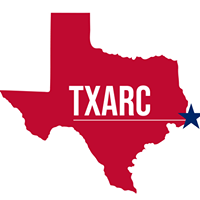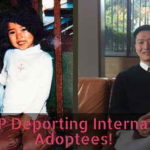Texas lawmakers are currently reviewing HB 683 which raises the age an infant can be “legally abandoned” under the state’s Baby Moses (Safe Haven) law from 60 days to 1 year of age. I sent a letter last week to members of the House Juvenile Justice and Family Issues Committee asking them to vote DO NOT PASS. The vote is pending, but I am pretty sure it will pass and go on to the House for a floor vote. Since I planned to be in Austin to testify for HB the clean OBC bill, later in the week I decided to write a more detailed explanation of why I oppose the bill and hand-deliver it to members at the Statehouse. Since I am a Texas resident, I wrote it under my own name, not Bastard Nation’s, though this paper expresses Bastard Nation policy.
South Carolina will hear a similar bill soon.
……Marley Greiner, Executive Chair
TO:XXXXX
FROM: Marley E Greiner
DATE: March 17, 2021
RE: Opposition to HB 683—Expansion of the age qualification of the Baby Moses Law
I am writing to ask you to oppose HB 683 a bill to extend the age qualification for babies to be legally abandoned under the state’s Baby Moses (Safe Haven) law. I was unable to come to Austin for the March 15 hearing in the Juvenile Justice and Family Affairs Committee and emailed a greatly abridged version of this letter to you on Sunday night. I am in Austin now to testify on another bill and am dropping this by your office and hope to talk with an aide for a few minutes about the bill.
Introduction
For more than 20 years I have researched and written about Baby Moses/Save Haven laws and practices. For close to 10 years I published a weekly Safe Haven-resource newsletter. I have given in-person testimony on Safe Haven bills in Ohio and Washington, DC, submitted written testimony in several other states; published op-ed pieces; and presented papers on various Safe Haven topics at conferences sponsored by adoption, child welfare, and academic organizations, to women’s and law groups, and appeared on national television. I am currently working on four scholarly papers on Safe Haven law covering the difficulty of researching Safe Haven cases and outcomes; fathers rights; infant mortality rates; and the history and outcomes of the Ohio Deserted Child Act
I oppose HB 683, a bill that raises the age a baby can be “legally surrendered” through the Texas Baby Moses law from 60 days to 1 year. Only North Dakota and Missouri permit “legalized abandonment” up to that age, I remember specifically one case in North Dakota where a recently widowed young man anonymously turned over his nearly 1-year old child with information saying he felt incapable of raising him by himself. State authorities applauded his actions. This should never happen. Time frames in most states limit newborn “safe surrender” from birth to 30 days of age with a handful of states, such as Texas 45-60 days. The extension into that high-end has been controversial and defeated in other states that have attempted it.
It is disturbing and troubling that after 20 years we are still going over the same territory regarding the efficacy and ethics of Safe Haven laws and that lawmakers and the public still have little understanding of the purpose of Safe Haven laws much less the consequences they present. When I watched the Juvenile Justice and Family Affairs Committee hearing online this morning, I was disappointed that no real hard questions were asked, no consequences discussed. All of the problems created by the expansion were not only ignored but rubber-stamped.
Baby Moses Law
HB 683 posits that anonymously and legally abandoning into the Baby Moses system, an older child up to the age of 1 year–a child with an established identity, family, personal relationships, social and medical history, and ties to the community is necessary, much less ethical. While family counseling, respite care, temporary foster care, and even adoption can be solutions to parental child-rearing problems, anonymously dumping a child of any age—especially an older child–should never be seen and urged as a solution, particularly by the state.
At no time to the best of my knowledge have Safe Haven advocates–though some supported a 30 day limit–suggested that older babies or children with acknowledged identities and families be eligible for legal abandonment under the movement they created.
Most neonatocides occur within 24 hours of birth. Safe Haven laws were enacted 20 years ago with that in mind and with one specific purpose: to serve as an emergency voluntary custody transfer of newborns at risk of discard or neglect by parents—usually mothers–unable or unwilling to care for them, but who also did not want to interact directly with social service agencies, (often due to past experience), private adoption agencies, and other resources to seek assistance.
The original Safe Haven laws were aimed specifically at women in concealed or denied pregnancies who underwent secret birth outside of a medical delivery system. These mothers generally feared parental or partner disapproval or abuse, or Draconian social service and immigration practices that could lead to the loss of other children, imprisonment, and even deportation. They often had no viable economic, family or social support. They just wanted a quick solution to their problem. While mental illness and substance abuse are often cited as reasons for discard, they seem to play a minor role in discard or the use of the “safe surrender” option.
Studies indicate that about 95 percent of babies killed during the first week of life are not born in hospitals, while only 8 percent of babies killed later in life are born outside of hospitals. Once a concealed pregnancy is acknowledged, and discussed, the danger of discard nearly evaporates. The deaths of older children from abuse or neglect are not connected to concealed pregnancy or birth, and the Safe Haven mission. Outside of the rare revenge or altruistic killing (usually committed by fathers or other men) injuries and deaths are almost always accidental—that is, the mothers, did not plan to harm or kill their children, nor did it occur to them, even in hardcore abuse cases, to turn them over to the state for care. They, in fact, will fight to retain custody when the state does become involved. A forever abandonment never crosses their minds.
Proponents of extension, however, have rejected these studies as well as the original mission and purpose of Safe Haven laws. They argue that women need to ease into motherhood– to “assess the gravity of the situation.” They need time to decide if motherhood is for them. “Every woman is different,” they say, and every woman works on a different decision schedule. That language implies that Baby Moses/Safe Haven laws are gendered laws, If men were to suddenly become the chief users of the laws, I am convinced that they would be rescinded.
The California Story
A few years ago legislators in California attempted unsuccessfully for three sessions to raise the age qualification for Safe Haven relinquishment citing sleep deprivation, crying, babies, and post-partum depression as justifications for anonymously surrendering older babies—a permanent solution for common temporary problems that most new parents experience. Objections to the expansion are well documented and the best source of information on why these attempts were opposed and by whom.
In California, numerous veteran Safe Haven advocates and organizations, prolife groups, police, country prosecutors, adoptee rights advocates and adoption reformers opposed the bills. California Right to Life Advocates joined by the California Right to Life Committee argued that an age extension endangers infants. They believed that extension advocates flipped the intent of the state’s Safe Haven law from “saving the life of a newborn” to protecting parents from charges of child abuse that happened later and had nothing to do with concealed birth. An emergency child transfer was becoming a child welfare issue.
..this changes the purpose of the bill from one of saving a life from imminent death at fear of discovery following birth to one of protecting a parent from child abuse charges when he/she surrenders a child with whom the parents grew tired of playing house birth.
Debi Faris-Cifelli is the founder of the Garden of Angels, an organization similar to Eagles Flight in San Antonio, that takes legal custody of deceased discarded infants and buries them in their own cemetery She is a major advocate of Safe Haven laws, and her work was greatly responsible for passage of the California. law She backed the RTL arguments:
Infants left with unwilling mothers for up to 30 days could be abused or neglected, or abusers could use the law to hide their identities by dropping off babies after the visible signs of violence have faded.“I want that child to be placed in safe arms–not in a dangerous situation out there where he or she can die or be neglected or abused, “she said. No child deserves that.”…
Other organizations such as the County Welfare Directors of California, The Los Angeles County District Attorneys, and the Los Angeles Inter-Agency Council on Child Abuse and Neglect ()ICAN) an extremely active partner in Safe Haven programs also agreed.
Objections to Expansion
From the point of view of child welfare 683:
-
If the child has been physically or sexually abused, it will be difficult, if not impossible to track the anonymous person who delivered the child to the Baby Moses surrender location. The longer the period of so-called “safe surrender,” the greater the risk that this remedy will be misused by some to escape responsibility for child abuse, as well as crimes such as partner abuse, incest and rape. The Safe Havening of one child falling under the expanded time frame can endanger the safety of the mother and other children in the home since it is likely they are also abused. The implementation of HB can delay or ignore the possibility of interventions that can help parents and develop a plan for their child in a safe and caring manner, even for parents already in the system.
- Increases the number of children in foster care or adoption that purposefully lack a medical history that could be detrimental or even fatal later.
- The other parent or family members willing to care for the child with an established family and community will have no way of knowing that the child has been “safely surrendered.” The child, as an accepted member of the family, will be missed. Questions will be asked by family members, neighbors, and the community as a whole. Law enforcement and social services can be called to investigate the “disappearance” The unilateral action of one parent can lead to custody litigation, criminal charges, abrogations of the federal Indian Child Welfare Act, and adoption disruptions. Many adoption agencies throughout the country including Texas, oppose Safe Haven laws because of these problems. Abrazo Adoption Associates in San Antonio strongly objects to HB 683 and I understand a representative plans to contact you or Rep. Minjarez to discuss their concerns.
While I have stressed direct child safety and welfare issues above there are other equally compelling problems in extending the Baby Moses time frame that concern adopted people birth families, and adoptive families. The extension:
- Continues and expands the Baby Moses parallel child welfare system that rejects informed consent and a full record of identifying information and social and medical histories of children that eliminates adoptees’ right to identity by denying their right to full and original birth and heritage records.
- Ignores and replaces professional best practice standards with unprofessional and unethical “relinquishment” by letting parents abandon solely for convenience or out of ignorance with no counseling, paper-signing, or discussion on alternatives mentioned above.
- Denies the non-surrendering parent the right of custody and to rear her or his own child and the child to be reared in her or his own family and community. There is no mechanism in place to prove that the “surrendering” person has the legal right to do so. Abusive, embarrassed, or frightened partners, spouses or family members can drop off an inconvenient infant without consent or knowledge of the (other) parent with no repercussions. They encourage physical and emotional abuse, coercion, and silence within the family.
- Disenfranchises natural parents –particularly the non-surrendering parent (usually the father) –their right to due process by eliminating their ability to locate the child; thus denying them knowledge of (among other things) the dependency proceeding to which they are a party. The Putative Father Registry, touted as a safeguard is useless since records are filed by the name of the mother. And obviously the PRF is also useless in the case of married women where husbands with minor exceptions have absolute parental rights.
Safe Haven Baby Boxes
The Texas Legislature is currently reviewing HB 1843/SB443, a measure that authorizes the use of Safe Haven Baby Boxes (SHBB) in the state to supplement the Baby Moses Law. SHBBs are “newborn safety devices” placed in the walls of hospitals and fire stations in which a baby can be placed for an impersonal “relinquishment” without benefit of the face-to-face turnover required by current law. Advocates say boxes are necessary to assuage shame, and embarrassment that anonymously abandoning parents experience, but ignore the lifelong detrimental effects on those children left in the boxes. If both HB 683 and HB 1843/SB443 pass, this means that parents will soon be permitted and urged by the state to drop a cranky squirmy, walking and talking infants who know their names and their parents to be disappeared from their families and communities forever simply for convenience sake. As parents and grandparents how does that make you feel? This is state-facilitated child abuse.
Conclusion
No one wants to see infants and children abused or killed, but expanding the Baby Moses age qualification is not the answer. Extending the time frame for babies eligible for the Baby Moses program is simply creating an expedient way for parents (or others) to dump infants they no longer want or on whim, with no questions asked. Expansion is an expedient way for disgruntled partners and family members to dump inconvenient infants into the Baby Moses program with no legal or moral repercussions. Expansion doesn’t even begin to address a solution to child abuse neglect and abandonment. Expansion can’t even support anonymity since parents just can’t simply dump an acknowledged infant without bringing attention to themselves.
The County Welfare Directors of California, summed up the absurdity of Safe Haven expansion and the flipping of the Safe Haven mission:
The overarching policy of anonymity for women who surrender their babies under the current law would be compromised by the time a child is more than a few days old. It is unrealistic to believe that a woman could or would give birth to a child, hide its existence for 30 days, and only then decide to surrender the baby.
Please think about HS 683 carefully. Oppose HB 683 and vote DO NOT PASS. The children of Texas deserve better.


 New York Adoptee Rights Coalition
New York Adoptee Rights Coalition












Hello, thank you for posting this article and sharing the history of safe haven laws in Texas. I am writing a research paper on the effects of safe haven laws in Texas and am looking for sources for statistics regarding the correlation of infant death and infant abandonments. You mentioned in your article a few statistics but I did not see any sources for this. Would you be able to send me the sources for the statistics you mentioned, specifically your statement, ““Studies indicate that about 95 percent of babies killed during the first week of life are not born in hospitals, while only 8 percent of babies killed later in life are born outside of hospitals. Once a concealed pregnancy is acknowledged, and discussed, the danger of discard nearly evaporates. The deaths of older children from abuse or neglect are not connected to concealed pregnancy or birth, and the Safe Haven mission. Outside of the rare revenge or altruistic killing (usually committed by fathers or other men) injuries and deaths are almost always accidental—that is, the mothers, did not plan to harm or kill their children, nor did it occur to them, even in hardcore abuse cases, to turn them over to the state for care. They, in fact, will fight to retain custody when…”
I would greatly appreciate it!
Hi Libby–Thanks for contacting us. What a great project! Stats are extremely difficult to obtain since either nobody collects them or they are collected haphazardly. It’s a mess. I need to look around a bit. I generally over-source/footnote, but since this was testimony, I didn’t. ugh! I’ve got your email addy and will contact you in a day or two to talk more about this. Have you gone over to my side gig page, Stop Safe Haven Baby Boxes Now! I have over 100 pages of information and blogs. THough it focuses on baby boxes, trad SH is also covered in some places.https://stopshbbnow.org/